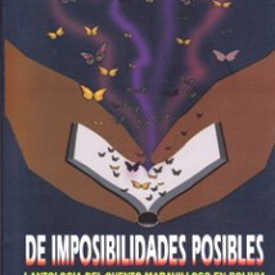
The science fiction and fantasy genres are awash with coming-of-age stories. The reason for this is simple: teens make up the most voracious segment of the SF/F book buying audience, and they relate to coming-of-age stories. It is a no brainer for publishers, but it does result in a considerable amount of clichéd and formulaic garbage to wade through when searching for truly original and exciting variations on the theme. Fortunately, it is not a fruitless search, a fact that I was pleasantly reminded of when reading Robert Chansky’s Hundred Ghost Soup.
Bei Jimo is a seventeen-year-old orphan in Beijing, one month away from his maturity, with virtually no chance of being adopted at this late stage. He has recently discovered that the orphanage files list him as being handless, surely a handicap that has kept him off the adoption rolls all his life. And he is stuck with a milk name, a temporary that should have been replaced with a formal name long ago. Instead, he is Jimo – “Lonely.”
All these misfortunes he has accepted as he prepares for a university exam that is to determine his place in life. Then he chances to overhear a conversation between Clerk Tin, the head of the orphanage, and a mysterious government official named Uncle. Someone has submitted adoption papers for Jimo from a town called Dongxi. Uncle dismisses the papers as false even though they have all the appearances of legitimate documents. Clerk Tin assumes that they must come from criminals looking for a young person they can use for ill purposes. She shreds the documents, much to Jimo’s horror.
That night, Jimo sneaks into the Clerk’s office, hacks into her computer and forges the adoption approval. Three days later, he is on a train on his way to a town that is not on the map, a town where the train is not supposed to stop, a town without people – a ghost town.
From the moment of his arrival in Dongxi, Jimo enters a realm of uncertainty. Mr. and Mrs. Vulpin, his adoptive parents, turn out to be fox spirits, creatures known for trickery and illusion. Jimo, it seems, is supposed to help end a curse that binds a group of ghosts to Mr. Vulpin. In exchange, should Jimo stay, he will receive a name and an inheritance as his promised reward. But Jimo’s trust is put to the test when he learns that the food Mrs. Vulpin has been feeding him is an illusion. They are slowly starving him to death.
Hundred Ghost Soup impressed me in several ways. First, it managed to be unpredictable without feeling like forced randomness. Each twist and turn felt natural to the plot, yet took me in directions I hadn’t expected. Second, this is not a “gulp it down” quick read. The story is too beautifully written not to savor. And although this is likely to be shelved in the YA section, it will just as easily satisfy an adult audience. Third, the depth to which the author explores Chinese myth and culture infuses the story with an intriguing otherness. This last point might just be due to my ignorance, but I found these aspects compelling and weird from my western perspective.
Robert Chansky’s Hundred Ghost Soup is a coming-of-age story unlike any other I have read. Full of Chinese mythology and culture, it is creative, weird, and beautify written. I recommend it to teens and adults, particularly those who tire of the formulaic mold used for so many other novels in the genre. Hundred Ghost Soup is available from Curiosity Quills Press in both trade paper and digital formats.










